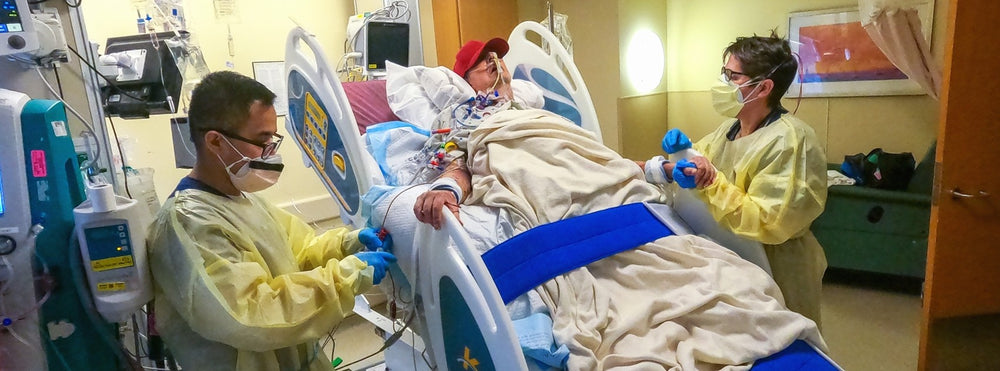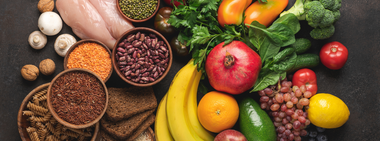Pig-to-human heart transplant: Incredible medical advancement or wake-up call?

For the first time ever, a human seems to have successfully received a heart transplant…from a pig! It’s great news for the man, a 57-year-old who was suffering from end-stage heart failure but was not a mechanical heart pump candidate because of his irregular heartbeat.
And all I can say is WOW.
As we transition to February, a month dedicated to heart disease awareness, what a shining example of the ongoing technological breakthroughs in heart disease care!
Previous attempts at xenotransplantation (animal-to-human organ transplants) failed because of rejection: The animal organ was recognized as foreign by its human recipient and attacked by the immune system.
This time, the pig heart was seriously genetically modified to help prevent rejection. Three genes that drive rejection were disabled and six that encourage immune acceptance were inserted in the genome of the pig supplying the transplanted heart. Radical genetic engineering of another species coupled with major heart surgery – it’s almost science fiction. And 18 days after his procedure Mr. Bennett is not showing any signs of rejection and is even starting physical therapy! Truly amazing. Kudos to the teams of physicians and genetic engineers that made this possible. They have truly paved the way for future advancements in organ transplantation.
Yet there’s one observation I haven’t heard anyone make: We devote a lot of energy and ingenuity to develop these ever-more-complex, extreme medical therapies - and celebrate them all. But shouldn’t we be focusing all that energy and ingenuity on reducing the need for those therapies in the first place and celebrate that? Make it easier to build health instead of making it easier to treat disease?
Many people consider the lifestyle changes needed to avoid heart disease - like following a predominantly plant-based diet - to be somewhat extreme. But as compared to what? Getting a bypass?? Call me an outlier, but I would rather eat my weight in broccoli and quinoa than undergo open heart surgery (and I'm not even a broccoli super fan!).
Something as common as getting a stent to “fix” plaque buildup also seems more extreme to me than preventing the problem from the get go. And yet, about a million Americans undergo stent implantation each year. By the way, a stent can’t “fix” atherosclerotic disease. There are 60,000 miles of blood vessels in the body. A one inch stent barely fixes 1 inch of all that.
Beyond procedures, even routine medications like statins and blood pressure lowering drugs are extreme compared to healthy foods: All pharmaceuticals come with potential side effects that most people would prefer not to experience.
To be sure sometimes the highest-tech medical resources are absolutely necessary, and no amount of lifestyle modification could prevent them. Congenital heart defects, faulty heart valves, heart muscle abnormalities, rhythm issues, connective tissue disorders that lead to aneurysms – these are conditions that can require complex interventions, regardless of whether or not you eat your vegetables. Familial hypercholesterolemia (genetically driven very high cholesterol readings) almost always requires medications. I don’t EVER mean to imply that what medicine and surgery have to offer has no value. It’s amazing what we can do! I became a cardiologist because the field is so exciting and dynamic and has so much to offer patients. And Mr. Bennet is the beneficiary of all those advancements.
And I also don't mean to imply that people who require a stent, bypass surgery or medications are somehow failures! All any of us can do is try our best. And not everything is under our control: Sometimes even our best might not be enough.
But let’s also remember that no matter where we are starting from (even if we’ve already had a stent or bypass), no matter what genetics we bring to the table, we all have some - and sometimes A LOT - of power over our future health destinies. And much of that power is derived from the foods we eat.
The nutrition piece does not have to be hard or overwhelming or even radical. All you need to do is just remember Michael Pollen’s mantra: Eat food. Not too much. Mostly plants. It really is that simple.
And at Step One Foods we’ve made it super easy to get started on the path towards that eating plan: Just swap out a couple of your daily snacks for one of our bars and a smoothie, and you’ll be well on your way to lowering your bad cholesterol.
What’s less extreme than that?
Source/Photo Credit: CBS Baltimore

Tested & Proven Results.
- Cardiologist formulated
- Supported by over 500 publications
- Clinically-proven, in a double-blind randomized trial with Mayo Clinic and The University of Manitoba
80% of participants lowered their cholesterol in just 30 days. With just two servings per day, Step One Foods offers a proven-effective way to naturally lower LDL (bad) cholesterol.
Get heart health tips and articles like this, delivered right to your email.
New articles every week.
You may also like...

Insulin Resistance, Prediabetes and Type 2 Diabetes. Part 4: Un-Doing It.

You don’t need to avoid foods with cholesterol…except for these



